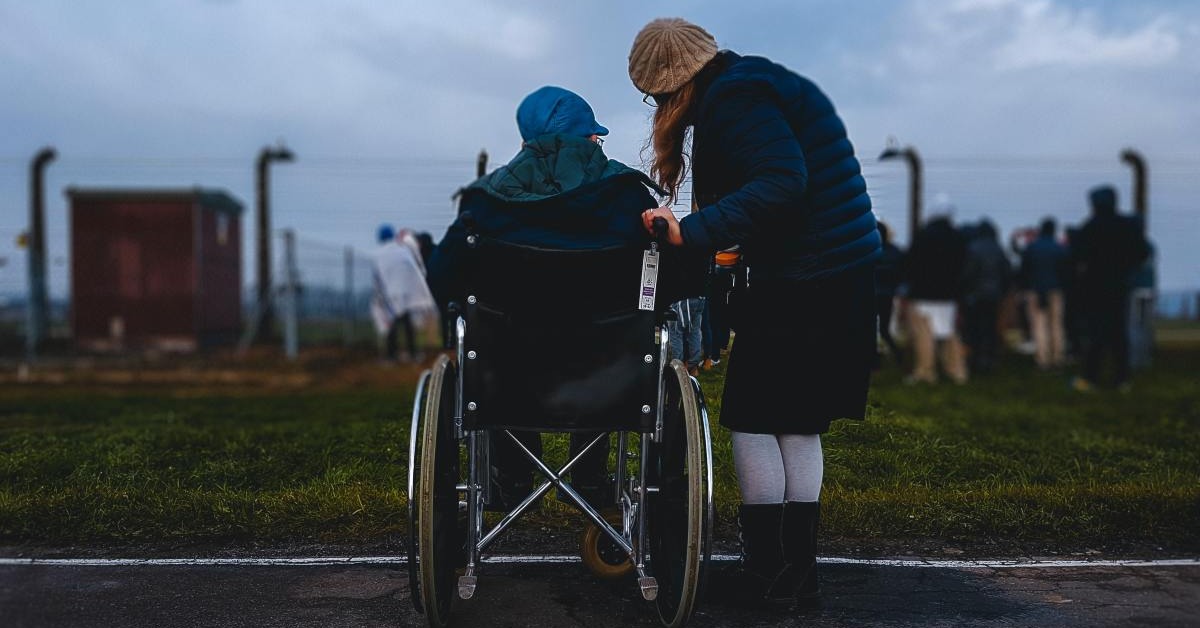
How to Become a Hospital Social Worker
Not everyone in a hospital wears scrubs. Some, like hospital [...]

Are you looking to work with patients and help them navigate the emotional, physical and logistical aspects of their journey through the healthcare process? Do you have the tenacity to advocate for patients? If so, then becoming a medical social worker may be just right for you. Medical social workers play a vital role in a patient’s treatment from admissions to recovery.
Medical social workers are master’s degree-level professionals who provide assistance and counseling in medical, health, and acute care settings. They work alongside other health professionals in a variety of positions. They hold various titles, including:
Medical social workers are employed in facilities such as hospitals, nursing homes, assisted living facilities, veteran’s centers, social services agencies, hospice, rehabilitation centers and other private and public healthcare facilities.
Because of the unique skills they bring to the work they do, medical social workers are in high demand. They’re considered valued members of an interdisciplinary healthcare team consisting of doctors, nurses, administrative staff, and physical and occupational therapists. They not only collaborate with these medical professionals in arriving at treatment plans and making interventions but also frequently lead.
A particular focus of many medical social workers is preparing patients for home life and stabilizing their reentry. Their case management duties involve providing support to both the patient and family members with discharge planning, counseling, home care, and referrals to community resources. In fact, resource navigation of benefits, housing, and ongoing care are primary functions of the medical social worker in a healthcare system setting.
Not all medical social workers are involved in direct or clinical care. There are many opportunities for medical social workers in community outreach, program management, and administration.
Some of the more common medical, mental, and social issues medical social workers help with are:
| University and Program Name | Learn More |
|
Merrimack College:
Master of Science in Clinical Mental Health Counseling
|
|
|
Virginia Commonwealth University:
Online Master of Social Work
|
Some social workers specialize around a particular medical issue or disorder. For example, they may provide counseling in in-house hospital clinics for psychiatric, substance-abuse, or eating disorders. Medical social workers are also uniquely positioned to specialize in palliative and hospice care, helping patients face terminal illness and end-of-life decisions.
Other areas where medical workers are highly specialized in a healthcare setting include:
Because hospitals (and many care facilities) operate under strict regulatory governance, social workers in these settings typically hold a Master of Social Work (MSW) degree and must be licensed to be employed.
In all but the most extraordinary cases, you will need a bachelor’s degree before you can commence work on a master’s degree. Your bachelor’s degree need not be in social work; however, a Bachelor of Social Work (BSW) will likely shorten the the amount of time it takes to earn your master’s.
The credentials of a licensed MSW demonstrate the highest degree of professional training and education. In a medical setting, these qualifications are the standard. Many, but not all, medical social work positions fall under the category of clinical social work; you will need to be a licensed clinical social worker (LCSW) to qualify for one of these jobs.
There are approximately 270 graduate-level social work programs accredited by the Council for Social Work Education (CSWE). Accreditation is important because it paves the path for becoming a licensed social worker. Click here to learn more about CSWE programs. If you want to work as a medical social worker, you will likely need to obtain your master’s from a CSWE school of social work. Only those graduates who earn the master’s from accredited schools meet the rigid requirements for licensure.
All social workers must adhere to a strict code of ethics defined and enforced by the National Association of Social Workers (NASW). The NASW also defines standards of practice for healthcare settings.
Licensed MSWs are third-party reimbursable (insurance providers reimburse a patient or hospital for health services provided). Depending on the medical or mental health setting, or the nature of the work performed, this may also be a requirement.
The academic discipline of medical social work is primarily oriented around patient care. You will find that many MSW programs offer a specific concentration in medical social work. This path of study will allow you to develop the skills necessary to perform in a medical or healthcare setting.
However, you need not to be limited to only those MSW schools with a focus or track in medical social work.
As a master’s student you will be required to complete two back-to-back fieldwork practicums, averaging a total of 900 to 1200 hours. To become a medical social worker, you can pursue a more generalized course of study in social work practice. You might then use your fieldwork placements to secure positions in medical or healthcare settings and seek out this specialized training. Fieldwork assignments in hospitals are common placements in social work school.
Whether you pursue a concentration in medical social work as a student or develop your skills in the field during your student training, medical social workers will always be in high demand. The medical care they assist in providing makes a tremendous difference in the lives of those they help.
Questions or feedback? Email editor@noodle.com

Not everyone in a hospital wears scrubs. Some, like hospital [...]

If you hope to effect change in policy and service [...]

Adding a second graduate degree to your JD can position [...]

Geriatric social workers do meaningful work for the betterment of [...]

Top psychiatric mental health nurses have diverse skill sets. They [...]
Categorized as: Counseling, Social Work, Social Work & Counseling & Psychology